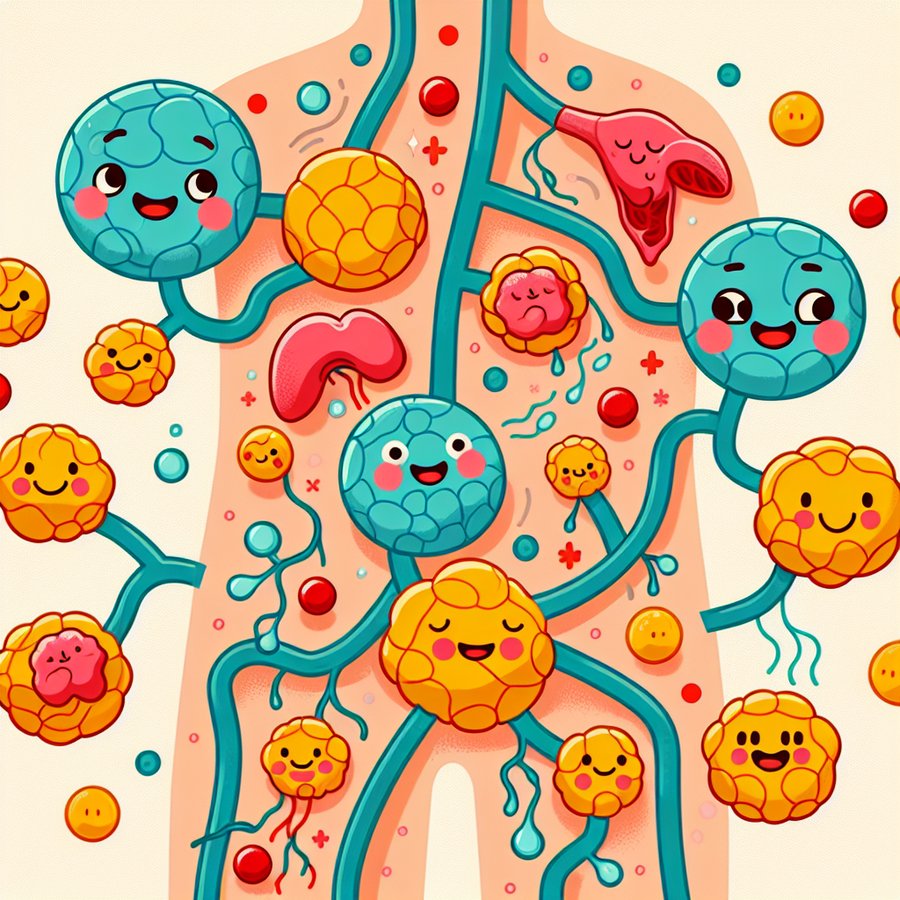Lymph nodes are a critical part of our body’s immune system, acting as filters for harmful substances. They contain immune cells that can help fight infection by attacking and destroying germs that are carried in through the lymph fluid. For new parents, understanding the function and significance of lymph nodes in babies is essential for monitoring and maintaining their child’s health.
What Are Lymph Nodes?
Lymph nodes are small, bean-shaped glands throughout the body. They play a key role in the immune system, helping your body recognize and fight infections and other diseases. In babies, lymph nodes can be a bit more palpable and noticeable, especially when they are fighting an infection.
Lymph nodes are part of the lymphatic system, which is a component of the body’s defense mechanism. The lymphatic system includes a network of lymphoid tissues and organs that produce, store, and carry white blood cells that fight infections and diseases. These include the spleen, bone marrow, and the thymus, apart from lymph nodes.
Common Lymph Node Locations in Babies
In babies, lymph nodes can commonly be found in several areas including the neck, under the jaw, behind the ears, on the back of the head, in the armpits, and in the groin area. These nodes can sometimes become swollen, which is usually a sign that the body is fighting an infection.
Swollen lymph nodes can feel tender to the touch and may be more noticeable if the baby has a low body fat percentage. However, it’s important to note that swollen lymph nodes are a common occurrence in babies and are usually not a cause for concern unless accompanied by other symptoms such as fever, night sweats, or unexplained weight loss.
Why Are My Baby’s Lymph Nodes Swollen?
There are several reasons why your baby’s lymph nodes might be swollen. The most common cause is an infection, such as a cold or sore throat. Lymph nodes that are close to the area of the infection might become larger, tender, or painful as they produce more white blood cells to fight off the infection. Other causes of swollen lymph nodes in babies include infections like ear infections, the common cold, or skin infections.
In some cases, swollen lymph nodes might indicate more serious conditions such as immunodeficiency, leukemia, or other types of cancer. Therefore, it’s important for parents to monitor the situation and consult a healthcare provider if the swelling persists for more than a couple of weeks or is accompanied by other concerning symptoms.
How to Check Your Baby’s Lymph Nodes
Checking your baby’s lymph nodes regularly can help you monitor their health and catch any potential issues early. To check your baby’s lymph nodes, gently use your fingertips to feel for any lumps or swellings in the areas where lymph nodes are commonly found, such as the neck, armpits, and groin.
If you notice any swelling, pay attention to the size, texture, and whether they move easily. Swollen lymph nodes due to infection are typically soft, tender, and movable. However, if the nodes feel hard, irregular, or are fixed in place, it’s important to consult with a healthcare provider for further evaluation.
When to See a Doctor
While swollen lymph nodes can often be a sign of a simple infection, there are times when it’s important to seek medical advice. If your baby has swollen lymph nodes along with a high fever, persistent night sweats, unexplained weight loss, difficulty breathing, or they remain swollen for more than two weeks, you should consult a healthcare provider.
Additionally, if you notice any swelling that increases rapidly in size, becomes very hard, or is fixed in place, these could be signs of a more serious condition, and immediate medical attention is advised. Remember, early detection and treatment are key to managing any potential health issues effectively.
For more comprehensive information on lymph nodes and related health concerns in babies, it’s recommended to visit reputable sources like HealthyChildren.org.













